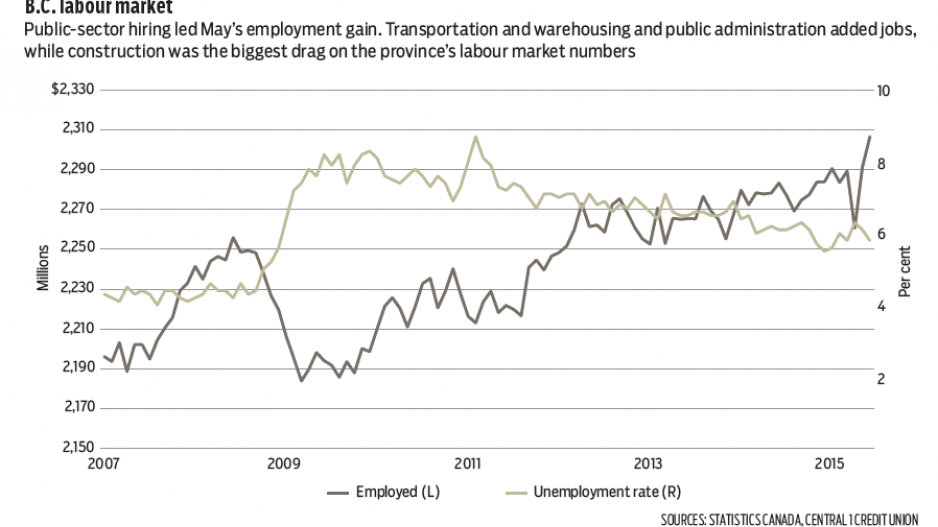British Columbia's labour market picked up again in June, following up May’s rebound with another strong gain in employment and a decline in the unemployment rate.
According to the latest Labour Force Survey results, B.C.’s economy added 15,400 jobs during the month – a simmering gain of 0.7% – to push total employment to about 2.31 million persons (seasonally adjusted).
Growth was led by a sharp 2% pickup in full-time employment, a gain of 36,300 persons that marked the biggest monthly increase since mid-2004 and more than offset a 4% drop in part-time work.
Gains were almost entirely oriented to public-sector hiring in May across B.C. industries.
The largest industry contributor to June’s gain by far was the transportation and warehousing sector, which added 11,000 jobs or 7.7% from May. Meanwhile, direct public administration posted a significant gain of 3.9%. In contrast, the construction sector was the largest drag, shedding 8,000 positions, or 3.9%.
While B.C. led the country in monthly employment growth in June and posted respectable year-over-year same-month growth of 1%, gains through the first six months were still underwhelming. Through June, average employment growth was an anemic 0.2%, compared to a national gain of 0.8%. A silver lining has been the rotation to full-time work, which was up 2% over the first half. Meanwhile, the unemployment rate eased for a second straight month to 5.8% in June, despite some uplift in the labour-force participation rate.
We expect mild improvements to B.C.’s labour market. While June’s public-sector growth is unlikely to continue, a rotation to private-sector hiring is expected. Employment is anticipated to drive annual growth to about 0.7% as employment counts gear off positive trends in the provincial economy, while unemployment averages about 5.8%.
Housing starts higher in June
B.C. housing starts jumped in June to cap off the first half of 2015 with the second-highest pace of starts since late 2008. Driven by elevated residential building permits in recent months, urban B.C. housing starts climbed to a seasonally adjusted annualized rate of 35,000 units, marking a 45% increase from May and a 31% gain from the same month in 2014. A rebound in multi-family starts, which climbed to an annualized 25,800 units from 16,000 units in May, led the increase. •
Bryan Yu is senior economist at Central 1 Credit Union.




